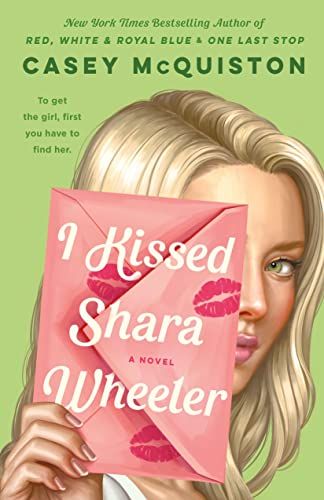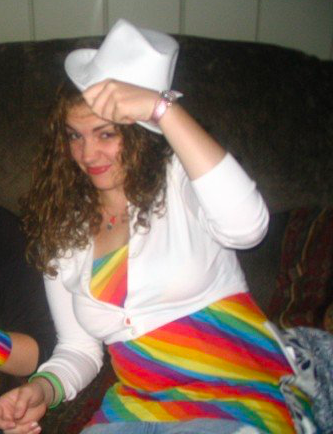But for a long time, I couldn’t quite put my finger on what it was about YA books that made my brain go a little squirmy. I’ve read and loved my fair share of YA books, don’t get me wrong. But something about them always made me feel uncomfortable. Even as a teen, I preferred reading adult books. I categorized it for a long time as feeling like I wasn’t the intended audience, which was eventually true once I aged into adulthood. I hate this feeling, because I know there are so many fantastic YA books out there by authors I adore, and they have as much diversity of genres, characters, and storytelling as adult books. Why didn’t they resonate with me? The book is told from the perspective of Chloe Green, a queer teenager who begrudgingly moves with her two moms from California to a small private school in Alabama. Ever since Chloe arrived at Willowgrove Christian Academy, she’s been dead set on becoming valedictorian, which means she’s in close competition with her private Christian school’s golden child, Shara Wheeler. But when gorgeous, smart, completely perfect Shara goes missing, Chloe knows something no one else knows: Shara kissed Chloe before she disappeared. Chloe sets off on a scavenger hunt for a series of clues left on pink stationery, determined to find out what happened to Shara. Chloe is a wonderful protagonist, whip-smart, determined, flawed, but bold enough to be fully herself even in unwelcoming circumstances. She hates Alabama and her new school, and she’s determined to show them that the queer outcast kid can come out on top of the class. And once she’s proved her point, she wants to disappear to college somewhere far away and never look back. In reading about Chloe, I couldn’t deny seeing many parts of my teen self. There are things about Chloe that I valued in my past self — intelligence, perseverance, quirkiness, a deep love of theatre — but she also has many of the traits that I hated about myself as a young person. She can get so caught up in a challenge that she fails to give her friends the love and attention they deserve. She can be hopelessly stubborn. Most importantly, she sees herself as an outcast, and in a self-fulfilling prophecy, decides to hate her community and fellow students before they can hate her first. Placing myself in Chloe’s shoes put me face-to-face with the reality I’d been unwilling to fully accept: I despised being a teenager. From the moment I turned 13, I wanted nothing more than to time travel to 18, when I imagined I would be able to truly be myself and live a life that I chose. Of course, nothing about life is quite that simple. But I saw high school as something I had to grit my teeth and survive to get on to the part of life that really mattered. Fully recognizing that about myself made me finally understand why I’ve never connected with YA. If I never connected with my own teenage years, why would I want to relive them in fiction? The thing about I Kissed Shara Wheeler that resonated with me the most was Chloe’s relationship to Alabama. I grew up in Arkansas, but I never remember Arkansas feeling like home to me. I was dreaming of moving somewhere else from my earliest memories. I felt hatred for my home state far before I fully recognized that I was queer. But seeing Chloe’s detestation for Alabama — a hatred completely entwined with her confidence in her queerness and love for her queer moms — also made me realize how much my confusion about my own sexuality was tangled up in my feelings about Arkansas. Chloe goes through a remarkable journey in I Kissed Shara Wheeler, and I don’t want to spoil too much of that for readers. But by the end of the book, Chloe’s feelings about Alabama, her school, and her classmates shift dramatically. She finds a way to recognize the flaws in her community while also celebrating its heart, uplifting other marginalized people, and confidently calling Alabama her home. While reading such a cheerful ending, I wondered, why was I sobbing? I never got that closure before leaving Arkansas. I wasn’t able to reconcile my young queer self with my conservative, religious “home” state. But seeing that happy ending for Chloe was its own kind of magic. It allowed me to imagine a similar outcome for queer kids in the South today. Despite the horrific “don’t say gay” bills and book bans trying to legislate queer young people out of existence, I know there are fierce little heroes like Chloe in every school who will fight for their right to be themselves — and to help the people around them without as much confidence step into their light. Since reading I Kissed Shara Wheeler, I’ve found a new place in my heart for YA novels. I recently finished Just Your Local Bisexual Disaster by Andrea Mosqueda, out May 24 from Feiwel & Friends, and I was delighted to root for the kind of messy, queer, perfectly imperfect teen who too rarely gets to be the star of the story. I loved Yolk by Mary H.K. Choi which, although not queer, shows a young person feeling adrift who finds that leaving Texas for New York somehow didn’t solve all of her problems. And I just started the incredibly endearing A Little Bit Country by Brian D. Kennedy, which celebrates queer Southern roots and reclaims part of the Bible Belt as a place for young LGBTQ+ love. There are so many YA books that I look forward to reading now that I’ve found a little forgiveness for my angsty queer teen self. What a remarkable gift it is to see hope and change through the eyes of teens in YA. I wish it was a gift I was willing to accept earlier in my life. Regardless, I’m grateful for the chance to heal through fiction — better late than never. Thanks for reading! You may also enjoy: A Plethora of Pride: 25+ LGBTQ Books for TeensWhat Books Belong in the Queer YA Canon?Trans Teens in Love: YA With a Trans Main Character and Love Interest

